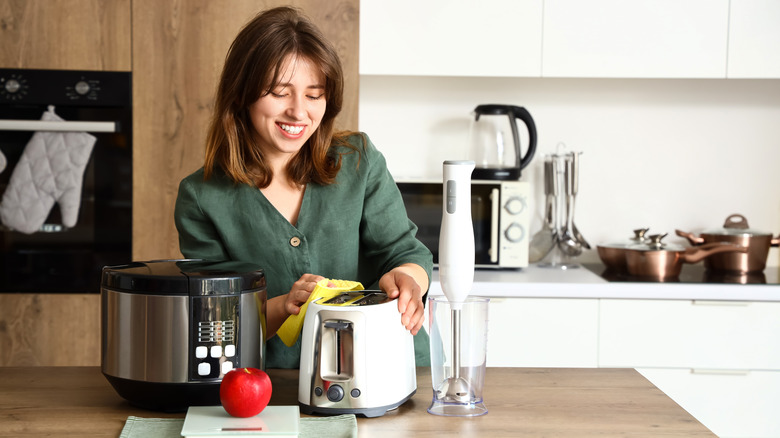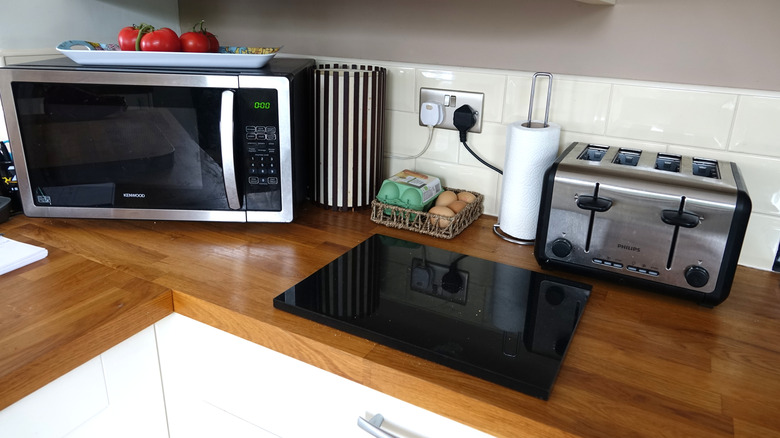The Number One Thing To Do Before Cleaning Any Small Kitchen Appliance
When it comes to cleaning your kitchen, large appliances, such as your oven and refrigerator, often take precedence over smaller ones. You might even consider the vinegar hack to cleaning and descaling your dishwasher on a regular basis. It's a good rule of thumb to clean these types of appliances at least once a month, and you can clean their surfaces without having to do much prep work. The rules are very different for small appliances, though. In order to safely clean blenders, microwaves, coffee makers, and other types of smaller appliances, you must make sure they are unplugged first.
Turning off a small appliance is one important step to take before cleaning. In terms of safety, simply turning it off isn't enough. Despite being in the "off" position, a small appliance that is still plugged into an electrical outlet can still pose the risk of creating electric shocks. Reducing overall fire hazards is yet another reason that it's a good idea to unplug your small appliances when they're not in use. You'll also want to avoid completely submerging the appliance in water, unless the owner's manual says otherwise. Even when unplugged, the water can seep into the electrical components and become dangerous during use, or even possibly damage the appliance altogether.
How to determine which small appliances require unplugging before cleaning
As a rule of thumb, any small appliance that is portable in nature ought to be unplugged while cleaning. Examples include blenders, mixers, toasters, air fryers, and microwaves. The same rules apply when you're using the best way to clean your coffee maker, too. Another determining factor is whether or not you could easily access the electrical components while cleaning. If any of the wiring is within reach, always unplug it before you start cleaning.
You don't have to unplug a larger appliance before spot cleaning, though. Unlike a small appliance, both the inside and front face of a large appliance can be cleaned while left plugged in because of the restricted access to its electrical components. Examples include an oven, refrigerator, cooktop, and dishwasher. (It is also highly unlikely that any one of these could become accidentally immersed into water as a small appliance might.)
When in doubt, you can consult with the manufacturer for instructions on how to clean the appliance at hand. Use soap and warm water for cleaning appliances that come into contact with food items rather than cleaners with chemical ingredients. It's also important to know how often you should really be cleaning your small kitchen appliances to maintain their safety and efficacy.

